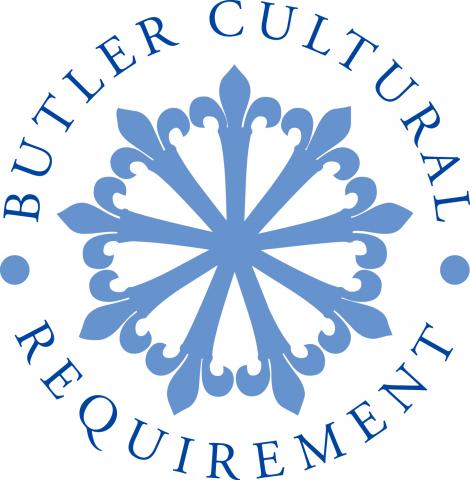New Butler Cultural Requriment updates due to COVID-19. Photo courtesy of Butler University.
CASSANDRA STEC | STAFF REPORTER | cmstec@butler.edu
While some students eagerly complete their Butler Cultural Requirements, or BCR, by their first year, others find themselves as Butler seniors with an ominously long list of events to attend. Regardless, the fall 2020 semester is going to look a bit different as BCRs experience reductions due to COVID-19 safety precautions.
Recognizing this, the Butler University registrar sent an email on Aug. 19 stating that every full-time student would receive one BCR credit for the fall semester.
“…all students who complete at least 12 credit hours at Butler this fall will receive credit for one BCR event at the end of the semester,” the email stated. “You do not need to do anything to receive this credit; the Core Curriculum office will work with the Registrar’s office to update each student’s record and the credit should show up on your graduation audit in early 2021.”
Along with the change to the requirement, the email also stated that there will be a new system in place for students to check-in to BCR-designated events. This new system will utilize Butler Engage, where students will register their attendance using either a unique QR code or URL. These codes will be available for a short period of time during both in-person and virtual events.
Travis Ryan, the faculty director of core curriculum, helped make the decision to reduce fall BCR events and to give all full-time students one BCR credit. Ryan explained his decision process revolved around student preparedness.
“If the student is pacing themselves they should attend one BCR event a semester,” Ryan said. “The idea was that it would be more challenging than usual for students to do that because of the way seating would be restricted in the venues where BCR events would normally take place.”
With the decision to use Butler Engage, Ryan also urged that both groups hosting events and students attending them need to pay attention to the new system they’re using.
“As a part of this process, the groups that are offering the BCR events will have to play a bigger role in having the student attendance counted,” Ryan said. “We are excited about this process because it should be much easier for students, but it is going to be a new process so everyone is going to learn as we go through it.”
With these changes and the need for socially distanced spaces, the ability for student organizations to apply for BCR accreditation to their events is suspended. Other non-student run organizations such as the Desmond Tutu Peace Lab and Jordan College of the Arts are still able to get BCR accreditation for their events.
Student organizations’ inability to obtain BCR credit for their events often affects the attendance rates and the presence of a variety of student groups.
Lauren Glenn, a junior strategic communication major, is the president of the Asian and Pacific Islander Association, or APIA. The organization normally seeks BCR’s for their many cultural nights, which occur in-person.
Glenn acknowledges that this semester will look different, as their events go virtual and lack a BCR designation.
“People, especially during these unprecedented circumstances, are much less likely to attend events because of high-risk in-person issues,” Glenn said. “And there is not much of an incentive to attend virtual events because you don’t get those normal cultural aspects we provide like food, conversation, dance demonstrations and things of those nature.”
While some student organizations like APIA will be greatly affected by the recent changes regarding BCRs, others have always experienced issues surrounding BCR designations, making these changes less problematic.
Roua Daas, senior psychology and French major, is on the executive board for Students for Justice in Palestine, or SJP. The organization applies for BCRs for the majority of their events, however very few receive the BCR designation.
“There are some events that usually have to do with organizations that are in the Diversity Center or DEIB in SGA that they are not so quick to approve,” Daas said. “To my knowledge, we’ve only gotten BCRs for the Tunnel of Oppression event.”
According to Daas, the Tunnel of Oppression event had a turnout of around 130 people, thanks to the BCR opportunity.
“I do think it will negatively impact us, but there have been biases that really show through in the BCR approval,” Daas said. “Due to these biases, it will not affect SJP or diversity organizations as much as groups that normally get BCRs…”
Ryan also touched on the process of BCR accreditation for student organizations.
“We are going to be looking at the entire process for student groups to have BCR events approved,” Ryan said. “So we’re taking advantage of this break to see if there are any changes we need to make going forward in the BCR approval process.”
SJP hasn’t planned for any events this coming semester, however, Daas does think that the precautions that are being taken regarding BCRs are good.
“I appreciate the fact that the university is trying to be lenient, and I think that is important at this time as students are already struggling,” Daas said. “You know they’re struggling with trying to balance classes and the pandemic on top of everything else so I think that flexibility is needed.”
